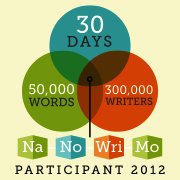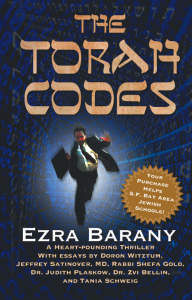NaNoWriMo is Starting! How to prepare for NaNoWriMo by Ezra Barany
 What’s the single most important thing you can do before you write a single word of your novel? As Beth said in Tuesday’s post, Ask the right questions about the experience you want your readers to have.
What’s the single most important thing you can do before you write a single word of your novel? As Beth said in Tuesday’s post, Ask the right questions about the experience you want your readers to have.
National Novel Writing Month (NaNoWriMo) is starting and I have a special way I prepare for NaNoWriMo. I use the “index card” app to outline my story. You can read about how you can layout a story using index cards here.
Something else I do to prepare is that I consider the experience I want my readers to have. More specifically, what experience can I give them to ensure they will talk about my book to their friends and families?
Here are four preparation techniques I use to ensure my readers will talk about my book to their friends and families.
1. Controversy: One thing I make sure my book has is controversy. I write about something I believe that few others believe. I present it in a way that is convincing enough to make people be more open to my unpopular opinion. For example, I believe planes cannot demolish towers. As a former physics teacher, I know that the only way the top of a tower can experience a free fall to the ground is if there’s no “normal force” (also called “support force”). To suggest that a plane can remove a tower’s normal forces is to suggest that the plane can magically make all steel and concrete vanish.
The point is, my message is controversial and backed up with logic. Readers may hate or love what I have to say, but whatever their reaction is, it will probably be a strong enough reaction to want to share the book with others. Even if the response of the reader is to say, “Whatever you do, don’t read his book,” at least she’s still spreading the word.
Do you not want controversy in your book? That’s fine. There are other ways, though they may not be as effective, to get people excited to spread the news about your book.
2. A Message Fitting Your Genre My genre is Jewish thriller, so I add a religious message to my novels. If your genre is, say, romance, then your message might be an epiphany you’ve had about relationships that not many people think about. If your genre is thriller without the religion, then your message could be an epiphany you’ve had about confronting danger or the psychology behind it.
An example of a message I’m using in my upcoming book Fighting with God is that I address the question, “If God exists, then why do bad things happen to good people?”
If you’re not sure what a good message to use would be, consider taking seminars in the subject matter of your genre. Take seminars on relationships if your genre is romance, take seminars on what it means to be a detective if your genre is mystery. Often at seminars, you’ll get pearls of wisdom. When you hear those pearls you find fascinating, notice the ones that are contrary to popular belief. Those are the ones to use because they’ll be the most likely to surprise your readers and make a lasting impression on them.
Danger, Will Robinson! Danger! Danger! The biggest problem that can come up when incorporating these messages in your fiction is that you can come off as preaching. Rather than shove the message down the throat of the reader by repeating it over and over, I let the power of the message be it’s own beacon and mention it in passing. A few sentences in the entire novel is all I need, once near the beginning and once near the end, to make the message come across. One reviewer of my book The Torah Codes wrote, “Was a little concerned that this book was going to have an agenda about Torah Codes, but I was pleasantly surprised.”
3. What’s Different About Your Novels? What’s the one thing in all your novels that separates you from most of the other authors? Do you write your chapters in backwards chronological order? Do you not use any chapters at all? Do you put codes in the text? Do you have scenes that are so imaginative, no one could possibly think of anything like it? (Neil Gaiman comes to mind as an example.)

I like to have my main character use science in surprising ways to defeat his enemy. Think MacGuyver and The A Team. For example, in The Torah Codes he makes a bathtub faucet out of magnesium. When the enemy accidentally triggers flames in his bathtub (thanks to potassium), the faucet catches fire and explodes in a flash of blinding light. The enemy, who’s afraid of fire and brimstone, gets spooked.
So what makes your novels different from all other authors’ novels?
4. Time-Lock This is if you want your book to be a page-turner. I like to figure out how I can add a deadline to my story so that the story becomes exciting.
Protagonist needs to deliver a package? Boring. Add a time-lock. Protagonist needs to deliver a package which has a bomb inside set to go off in ten minutes. Better.
Protagonist needs to tell a woman he loves her? Boring. Add a time-lock.
Protagonist needs to tell a woman he loves her as she’s putting on her wedding dress to marry another. Better.
Protagonist needs to ask father for forgiveness. Boring. Add a time-lock. Protagonist needs to ask father for forgiveness as the father is on his death-bed. Better.
Nothing helps turn pages faster than making the reader wonder, “Will he make it in time?”
These are four preparation techniques for NaNoWriMo I use to ensure that my readers will want to spread the word about my book. How do you prepare?
***
 Book marketing mentor, Ezra Barany is the author of the award-winning bestseller, The Torah Codes. Contact Ezra now to begin the conversation on how he can help you. You can connect with Ezra via Facebook, Twitter, contact him through this blog, or by email: EZRA at THETORAHCODES dot COM.
Book marketing mentor, Ezra Barany is the author of the award-winning bestseller, The Torah Codes. Contact Ezra now to begin the conversation on how he can help you. You can connect with Ezra via Facebook, Twitter, contact him through this blog, or by email: EZRA at THETORAHCODES dot COM.





